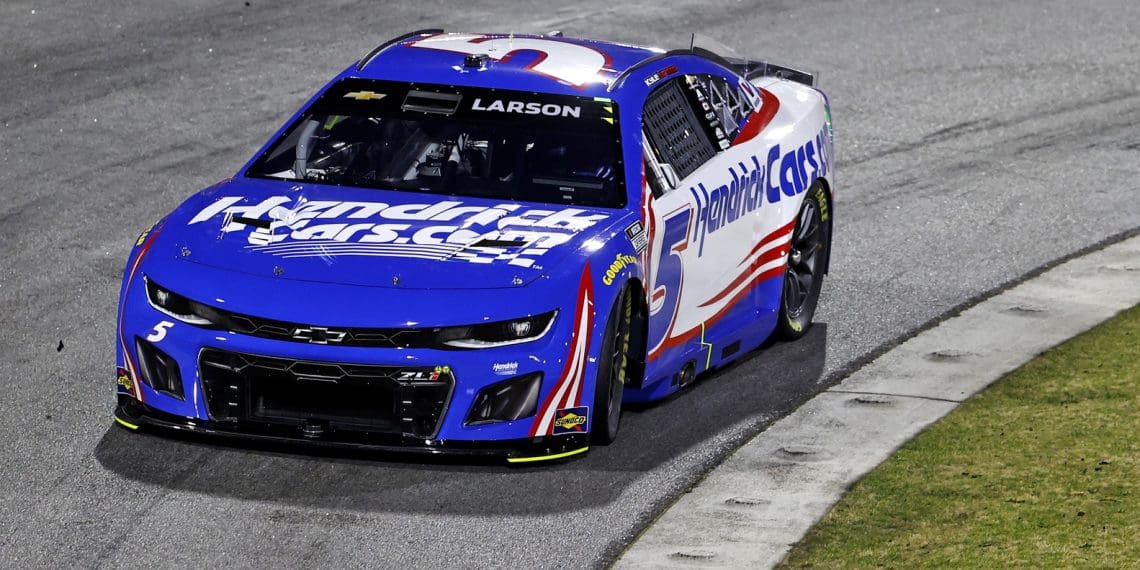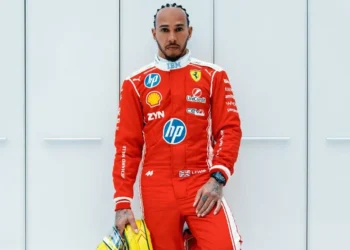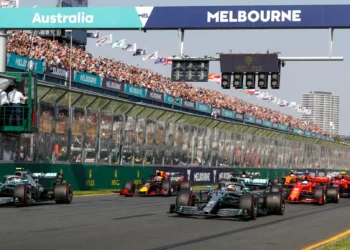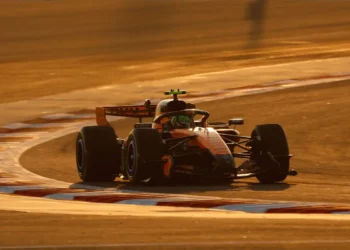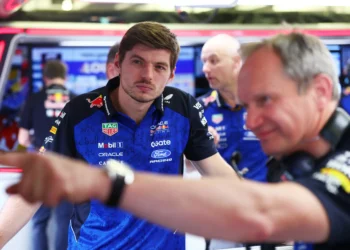NASCAR just dropped a game-changing rule, and it’s got the garage buzzing. Dubbed the “Kyle Larson Rule,” this controversial policy rewrites the playoff eligibility system, punishing drivers who miss races for non-medical reasons. While some call it a necessary deterrent, others see it as an overreach that could unfairly wreck seasons.
Chase Elliott? He’s all for it.
But why? And what does this mean for Kyle Larson, whose 2024 Indy 500/Coke 600 doubleheader attempt directly inspired the rule? More importantly, how will drivers like Denny Hamlin exploit this new reality?
How Kyle Larson’s 2024 Drama Created NASCAR’s Toughest Rule Yet
Kyle Larson’s ambitious plan to run both the Indy 500 and Coca-Cola 600 in one day was the kind of old-school motorsport bravery that fans love. But Mother Nature had other plans—a rain delay at Indy forced him to miss the start of the Coke 600, leaving him dependent on NASCAR’s waiver system to stay playoff-eligible.
That waiver was granted in 2024, but in 2025? Not a chance.
The New Rule: A High-Stakes Gamble for Every Driver
Under NASCAR’s new policy, if a driver misses a race for any reason other than a medical emergency, a family emergency, or the birth of a child, they will:
- Forfeit all playoff points—past and future.
- Lose a shot at the championship, even with enough wins.
That’s a massive shift from the old system, where waivers were given freely, often without major consequences. For someone like Larson, missing a race due to weather delays at Indy could have completely ended his season under these new rules.
Chase Elliott’s Take: It’s a Necessary Deterrent
Elliott, who sat down with Bob Pockrass, didn’t hesitate to defend the change:
“Like last year’s situation with Kyle [Larson], I think that would have made that decision really straightforward just because they would’ve never chanced that.”
Translation? If this rule existed in 2024, Larson’s team likely wouldn’t have risked the doubleheader at all.
More Than Just Indy: A Crackdown on On-Track Retaliation
Beyond preventing scheduling conflicts, NASCAR is also using this rule to curb retaliation incidents—something Elliott knows all about.
In 2023, Elliott was suspended for intentionally wrecking Denny Hamlin at Charlotte. Under the old waiver system, that one-race suspension didn’t affect his playoff eligibility. But under the new rule? One bad decision could wipe out an entire season.
“I think it is more a deterrent,” Elliott explained. “It’s an added deterrent for taking on-track action, for whatever it may be, that might get you in trouble.”
In other words, hot-headed moves now come with championship-level consequences.
“You wanna think through things before something happens,” Elliott added. “It’s a good way to make you think twice because that could ruin your year if you were having a good year prior to that.”
Denny Hamlin: The Master of the Rulebook Already Plotting?
While some drivers worry about this new reality, others—like Denny Hamlin—are already looking for loopholes.
With his third child on the way, Hamlin technically has an automatic exemption if he misses a race. But will other drivers try to work the system? Could we see convenient “medical” absences pop up in the future?
For now, the garage is divided. NASCAR’s new rule is either:
✅ A smart way to enforce commitment and discipline
❌ An unnecessary overreach that could punish drivers for things out of their control
Either way, one thing is certain—the days of waivers handed out like Halloween candy are over.

